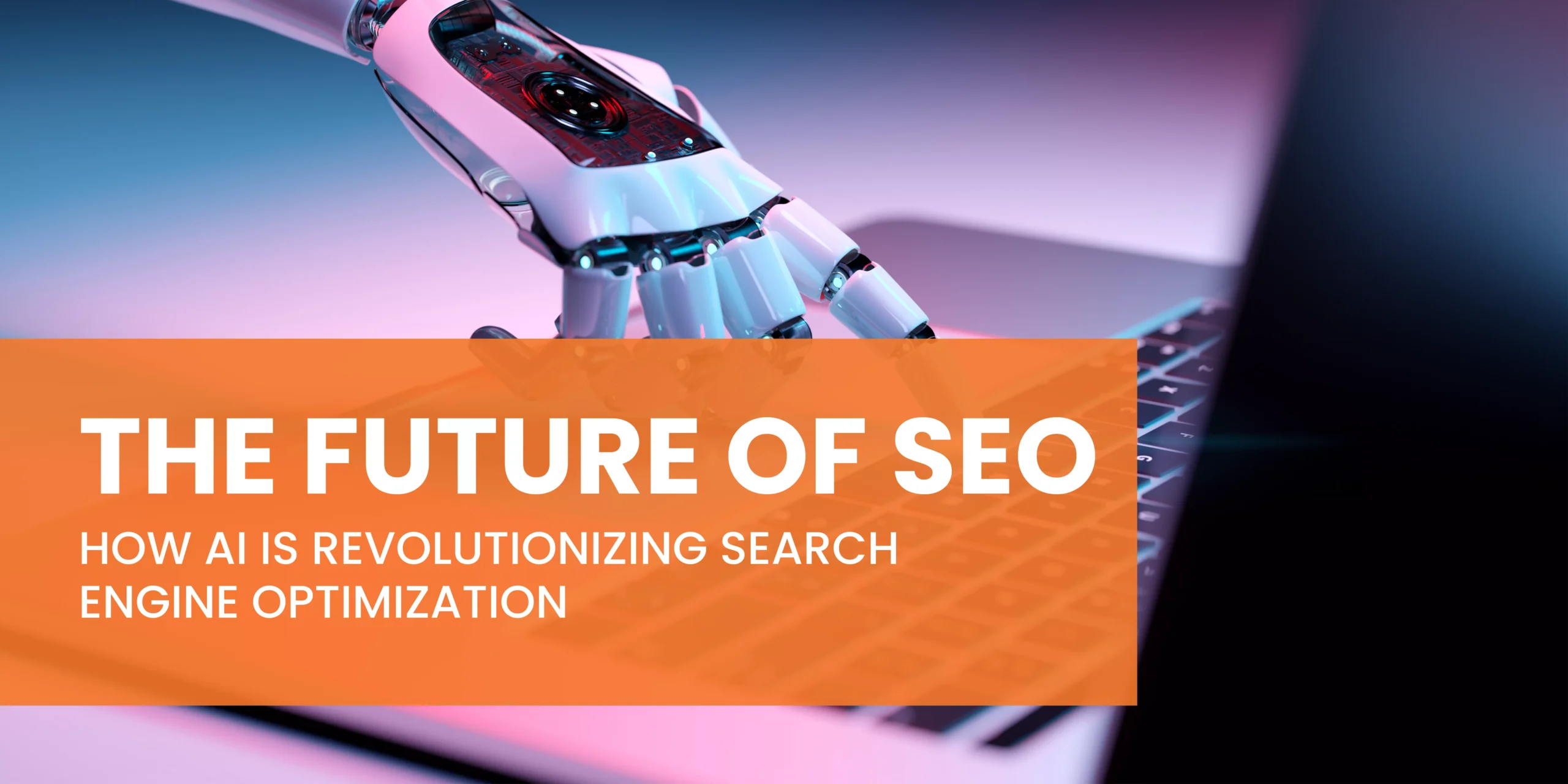
The Transformation of SEO Strategies: How AI is Revolutionizing Modern SEO Practices
The Impact of AI on Modern SEO Practices has brought about a significant transformation in the way businesses approach search engine optimization. With the rapid advancement of artificial intelligence technology, SEO strategies are evolving to adapt to this new landscape. In this era of digital marketing, understanding how AI is revolutionizing modern SEO practices is crucial for businesses to stay competitive and effectively reach their target audience online. This article explores the key ways in which AI is reshaping SEO strategies and the potential benefits it offers in enhancing website visibility and driving organic traffic.
Natural Language Processing (NLP) is a powerful tool that is revolutionizing modern SEO practices. NLP helps search engines better understand and interpret human language, allowing them to deliver more accurate and relevant search results to users. By analyzing the context and intent behind search queries, NLP enables search engines to provide more personalized and contextually relevant search results, leading to a more satisfying user experience.
In the world of SEO, incorporating NLP into content creation and optimization strategies can significantly improve search engine rankings. By creating content that is optimized for natural language patterns and user intent, websites can improve their visibility in search results and attract more organic traffic. NLP also plays a crucial role in voice search optimization, as it helps search engines better understand spoken queries and deliver more precise results. In essence, integrating NLP into SEO strategies can help businesses stay ahead of the curve and enhance their online visibility in an increasingly competitive digital landscape.
AI-powered content creation tools are revolutionizing the way businesses create and optimize their online content for search engines. By harnessing the power of artificial intelligence, these tools can generate high-quality, SEO-optimized content at scale, saving time and resources for marketers and content creators. With advanced algorithms and natural language processing capabilities, AI tools can analyze data trends, keywords, and user behavior to create compelling and relevant content that ranks well on search engine results pages.
By using AI-powered content creation tools, businesses can ensure that their online content is tailored to meet the demands of both search engines and their target audience. These tools can help identify relevant keywords, optimize meta tags, headers, and body text, and suggest improvements to enhance the overall SEO performance of the content. With AI technology constantly learning and adapting to new trends in the digital landscape, businesses can stay ahead of the competition and drive more organic traffic to their websites. Embracing AI-powered content creation tools is crucial for businesses looking to maximize their online visibility and attract more potential customers through search engine optimization.
Personalized search results and ranking factors play a crucial role in modern SEO strategies. With the advancement of AI technology, search engines like Google are able to deliver more personalized search results based on individual user preferences, search history, and behavior patterns. This means that the search results you see may differ from what someone else sees when they enter the same query.
In terms of ranking factors, AI algorithms now consider a wide range of factors beyond just keywords and backlinks. Factors such as user engagement metrics, website performance, and content relevance are becoming increasingly important in determining search rankings. As a result, optimizing for SEO now involves creating high-quality, user-focused content that resonates with your target audience and provides a valuable user experience. By understanding and leveraging personalized search results and ranking factors, businesses can improve their visibility online and attract more targeted traffic to their websites.
Voice search optimization with AI is a cutting-edge approach to enhancing SEO strategies in today’s digital landscape. By leveraging artificial intelligence technology, businesses can optimize their content to align with the natural language patterns used in voice searches. This allows websites to appear prominently in voice search results and reach a wider audience base. With the increasing popularity of voice assistants like Siri and Alexa, optimizing for voice search is crucial for staying ahead of the competition.
AI-powered tools can analyze user intent and behavior to generate relevant keywords and phrases that match the conversational queries made through voice search. By integrating these insights into content creation, websites can improve their visibility and ranking on search engine results pages. Additionally, AI can help businesses monitor and adapt their SEO strategies in real-time, ensuring that they remain competitive and responsive to evolving search trends. Overall, voice search optimization with AI is a game-changer for modern SEO practices, providing a more tailored and user-friendly experience for online consumers.
Predictive analytics is a powerful tool that is revolutionizing modern SEO strategies. By harnessing the power of data and machine learning algorithms, businesses can predict future trends and behaviors of their target audience with remarkable accuracy. This enables them to optimize their SEO efforts by anticipating changes in search engine algorithms and user behavior.
With predictive analytics, businesses can identify patterns and trends in search data to make informed decisions about their SEO strategy. By analyzing past performance metrics and user behavior, they can predict which keywords are likely to drive the most traffic and conversions in the future. This allows them to proactively optimize their website content, meta tags, and other elements to ensure they rank higher in search engine results pages.
In simple terms, predictive analytics in SEO strategy is like having a crystal ball that helps businesses see into the future of search engine optimization. By leveraging data-driven insights, businesses can stay ahead of the competition and attract more organic traffic to their website. This not only improves their search engine rankings but also drives more qualified leads and conversions, ultimately leading to increased revenue and business growth.
AI-based keyword research and analysis is a game-changer in the world of SEO. By harnessing the power of artificial intelligence, businesses can now uncover valuable insights into the most relevant and high-performing keywords for their content. AI tools can analyze vast amounts of data to identify trends, search volume, and competition levels, allowing marketers to make more informed decisions when optimizing their websites for search engines.
With AI-driven keyword research, businesses can not only save time but also ensure that they are targeting the right keywords to attract their target audience. By understanding the intent behind search queries, AI algorithms can suggest relevant keywords that are more likely to drive organic traffic to a website. This approach helps businesses stay ahead of the competition and improve their search engine rankings by focusing on the most impactful keywords for their industry.
In conclusion, AI-based keyword research and analysis are essential components of a successful SEO strategy in today’s digital landscape. By leveraging the capabilities of artificial intelligence, businesses can gain a competitive edge by identifying and targeting the most effective keywords to drive organic traffic and increase visibility online. Embracing AI in keyword research will not only streamline the process but also lead to better results in terms of search engine optimization and overall digital marketing efforts.
Automated link building and outreach strategies are essential components of modern SEO practices. With the advancement of AI technology, businesses can now streamline their link building efforts and reach out to potential partners or influencers more efficiently. By utilizing automated tools, companies can identify relevant websites for link placement, analyze their backlink profiles, and even personalize outreach emails to improve response rates.
Furthermore, automated link building can help businesses scale their SEO efforts and save time on manual tasks. By leveraging AI algorithms to analyze data and identify high-quality opportunities for link acquisition, organizations can enhance their online visibility and drive more organic traffic to their websites. Overall, incorporating automated link building and outreach strategies into an SEO campaign can lead to improved search engine rankings, increased brand exposure, and ultimately, higher conversion rates.
AI-driven website optimization techniques are changing the game for SEO practices. By leveraging the power of artificial intelligence, businesses can now optimize their websites more efficiently and effectively than ever before. AI algorithms can analyze vast amounts of data to identify patterns, trends, and opportunities for improvement on a website. This enables businesses to make data-driven decisions to enhance their website’s performance and visibility in search engine results.
One key AI-driven technique is the use of machine learning algorithms to predict user behavior and preferences. By analyzing user interactions on a website, AI can recommend personalized content and products to visitors, increasing engagement and conversions. Additionally, AI can automate tasks such as keyword research, content creation, and link building, saving time and resources for businesses. Overall, AI-driven website optimization techniques are revolutionizing modern SEO practices by providing businesses with the tools they need to stay ahead in an increasingly competitive digital landscape.
Chatbots and virtual assistants are becoming essential tools for SEO in the modern digital landscape. These AI-powered technologies can significantly enhance user experience and engagement on websites. By leveraging chatbots and virtual assistants, businesses can provide instant support to website visitors, answer questions, and guide users through their customer journey.
From an SEO perspective, chatbots and virtual assistants play a crucial role in optimizing website content for search engines. These AI tools can analyze user queries and behaviors to provide valuable insights into search intent and keywords that are trending. By incorporating these insights into content creation and optimization strategies, businesses can improve their search engine rankings and attract more organic traffic to their websites. Additionally, chatbots and virtual assistants can help streamline the user experience by providing personalized recommendations and guiding visitors to relevant pages, ultimately increasing user engagement and conversions. In summary, integrating chatbots and virtual assistants into SEO strategies can enhance website performance, boost search engine visibility, and drive better results for businesses online.
Machine learning algorithms are a game-changer for SEO data analysis, revolutionizing how we optimize websites for search engines. These algorithms use advanced technology to analyze vast amounts of data and identify patterns that can improve search engine rankings. By leveraging machine learning, businesses can gain valuable insights into user behavior, keyword trends, and competitor strategies, allowing them to fine-tune their SEO efforts for maximum impact.
One key advantage of using machine learning algorithms for SEO data analysis is their ability to adapt and evolve in real-time. These algorithms can continuously learn from new data, making them incredibly effective at predicting future trends and optimizing website performance. By harnessing the power of machine learning, businesses can stay ahead of the competition and ensure their websites rank higher in search results, driving more organic traffic and boosting overall visibility online.



